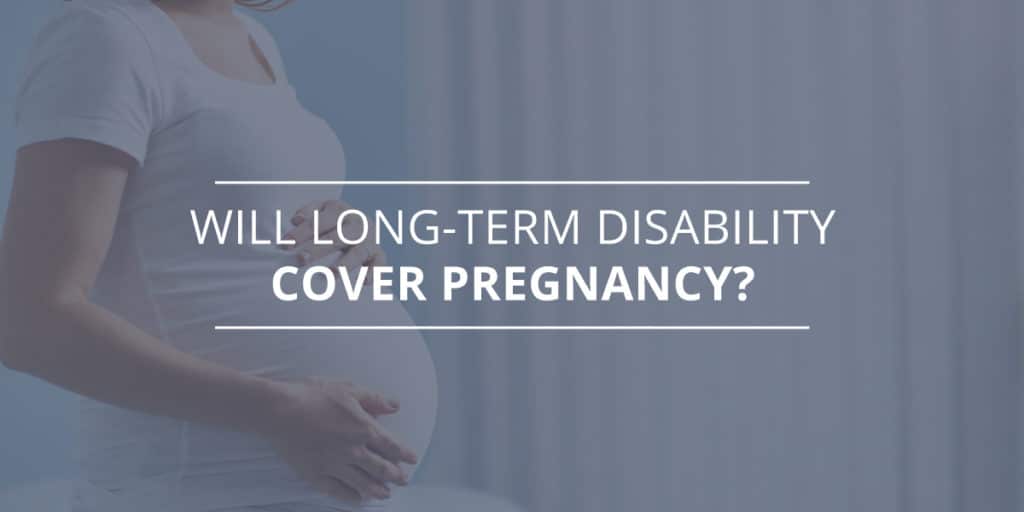
Can You Get Disability for Pregnancy? Yes, there is disability benefits available for pregnant women. Pregnancy is an exciting time for anyone expecting a little one. It can also be scary and overwhelming, particularly for individuals with health issues. Pregnancy can put a lot of strain on a person’s body, leading to serious complications.
Given the potential for complications both before and after pregnancy, it is not surprising that many women want to make sure that their income is protected in the event that they have to take leave. A disability insurance policy can provide a portion of your income if you need to take leave for a covered disability during pregnancy.
There are two types of disability insurance policies available: short and long-term. Read on to learn more about situations where long-term disability plans will cover pregnancy — and why a long-term disability benefits lawyer may recommend purchasing both types.
Why You May Need To Take Leave During — and After — Pregnancy
While many women are fortunate to experience relatively simple pregnancies and childbirths, complications are fairly common. According to the National Institute of Health (NIH), these complications may include:
- High blood pressure
- Gestational diabetes
- Infections
- Preeclampsia
- Preterm labor
- Pregnancy loss/miscarriage
- Stillbirth
- Hyperemesis gravidarum (severe, persistent nausea and vomiting)
- Iron-deficiency anemia
The Centers for Disease Control (CDC) further reports that each year in the United States, more than 50,000 women have severe pregnancy complications. Many of these conditions may require expectant mothers to take time off of work.
Beyond pregnancy itself, after childbirth, many new mothers may need an extended period of time to recover. In addition to recovering from the physical trauma of childbirth or a cesarean section, many new mothers develop postpartum depression (PPD), which is a more extreme feeling of sadness and anxiety that may interfere with their ability to care for themselves or their family. According to the National Institute of Mental Health (NIMH), up to 15% of women experience PPD.
The Family Medical Leave Act (FMLA) entitles covered employees to take unpaid, job-protected leave for up to 12 weeks per year for health and caregiving reasons. This includes pregnancy-related disability. However, not all employees are eligible for FMLA leave, and it is unpaid after accrued paid leave expires.
For individuals who cannot afford to take unpaid leave — or who want to save their unpaid leave for maternity leave — a disability plan may be critical to providing income in the event that complications arise during or after pregnancy. Both short and long-term disability plans may be useful for employees who are pregnant or considering pregnancy.
Pregnancy Disability and Disability Benefits
For many women, long-term disability insurance is a good option to provide coverage during and after pregnancy. But before purchasing this type of insurance, it is important to know exactly what is and is not covered — and when the policy will start.
Long-term disability (LTD) benefits pay a portion of your salary while you are on disability leave. Depending on the terms of the policy, you may be paid between 50 to 60% of your salary. The benefits will be paid until you return to work, or for the number of years stated in the policy.
To qualify for LTD benefits, you must have a covered disability. A LTD policy will not cover choosing to stay home either before or after pregnancy (as that is not a disability), nor will it cover giving birth itself. However, LTD policies will typically cover complications that arise during pregnancy, such as PPD and issues related to a C-section assuming they preclude work.
LTD coverage generally does not kick in until six (6) months after the start of a disability. This means that if you become disabled due to a pregnancy complication, you may not be eligible for benefits until after your condition has resolved. For this reason, many women may choose to also purchase a short-term disability policy. New Jersey provides temporary disability insurance and “family bonding leave” for many workers employed in the State.
How Short-Term Disability Coverage May Help
A short-term disability policy replaces a portion of your paycheck if you are unable to work due to an illness or injury. These policies typically provide coverage for between one (1) to six (6) months, depending on the terms and conditions of the policy. For this reason, short-term disability benefits are often a good way to maximize coverage for pregnancy complications.
Short-term disability policies will generally cover leave related to birth, as well as leave for pregnancy complications and PPD. For a normal delivery, short-term disability policies will usually provide six (6) weeks of leave for a vaginal delivery and eight (8) weeks for a cesarean section. This gives many women paid leave after childbirth, even if their employer does not provide leave.
Because many pregnancy complications are of a relatively limited duration, a short-term disability policy may be the better choice to ensure coverage during pregnancy and immediately after birth. However, in the event that you face more serious complications or that pregnancy aggravates an underlying condition, a long-term disability policy can provide greater protections over an extended period of time.
How a Disability Lawyer Can Help
Pregnancy is a miracle — but it can also lead to serious health issues for the expectant mother. If you are planning to grow your family, a disability insurance policy can protect your income while you prepare to add to your family. Both short and long-term disability policies can combine to ensure you are covered during and after your pregnancy.
With more than 20 years of experience, the long-term disability benefits lawyers at Bross & Frankel provide a range of services to our clients to help them receive the benefits that they deserve. To learn more or to schedule a free claim review, contact our office today at 856-795-8880, or online.